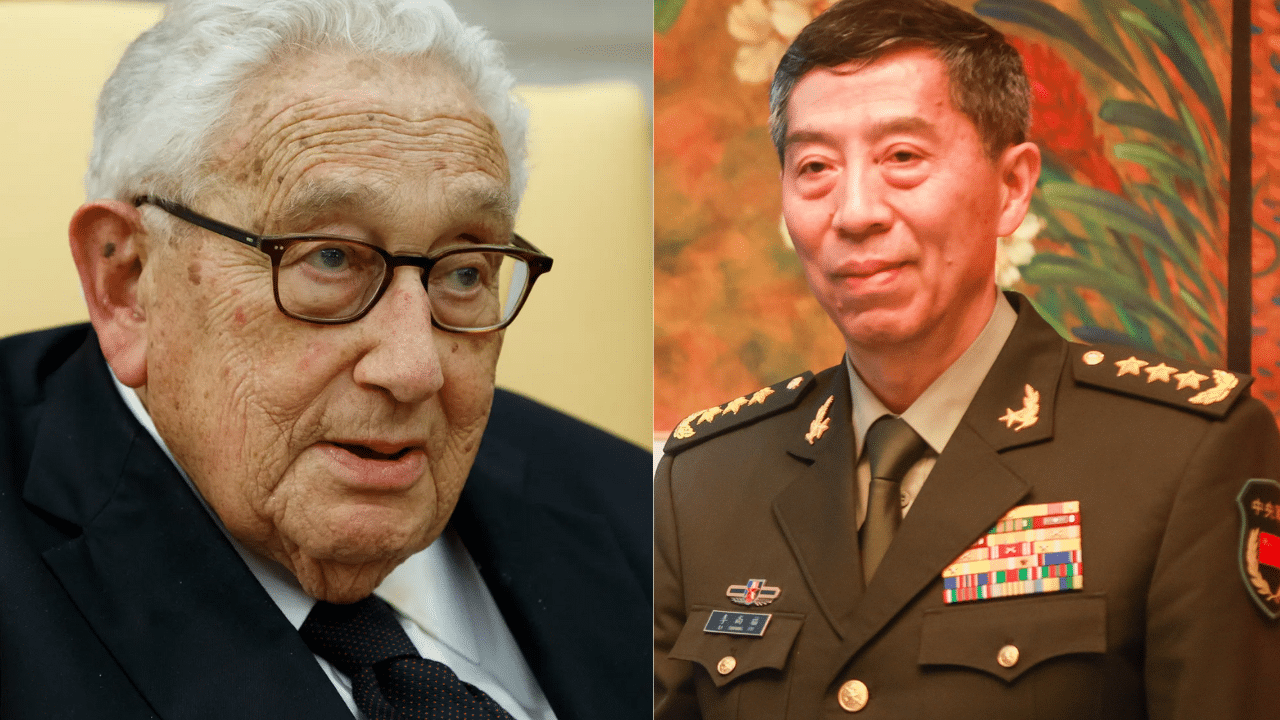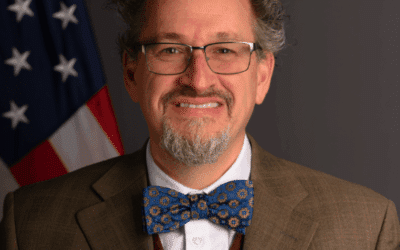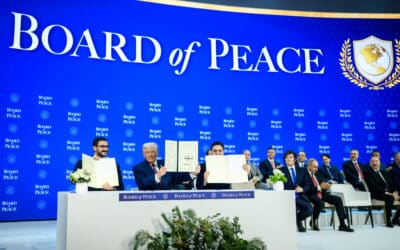Former Secretary of State Henry Kissinger visited Beijing and met with Chinese Defense Minister Li Shangfu on Tuesday. This comes as tensions between the world’s two largest economies have been heightened substantially as a result of the White House’s bellicose military strategy aimed at China.
Li said in a statement that the US-China relationship has reached its “lowest point since the establishment of diplomatic relations.” He added, this is because “some people in the United States did not meet China halfway.” Li warned against the rising tensions between Washington and Beijing, stressing that the “path of peaceful development that China is pursuing is a blessing for the world, not a disaster for the world.”
The Chinese military chief elaborated further, insisting that Washington “should have a correct strategic judgment. The future of our world will be better only when emerging countries and developed countries live in peace and develop together.”
In the same statement, Kissinger – who played a crucial diplomatic role during the Richard Nixon administration in establishing relations with Beijing under Mao Zedong – was described as a “friend of China.”
Kissinger has admonished that the consequences of war between the US and China would be “catastrophic.” He implored the two sides to urgently increase cooperation. “The United States and China should eliminate misunderstandings, coexist peacefully and avoid confrontation,” Kissinger said.
“History and practice have continuously proved that neither the United States nor China can afford to treat the other as an adversary,” he strongly advised. “If the two countries go to war, it will not lead to any meaningful results for the two peoples.”
In 2011, the Barack Obama administration launched the “pivot to Asia” largest military buildup since the Second World War, shifting two thirds of all US Air and Naval forces to the Asia-Pacific, encircling China for a future war. This policy was significantly expanded during Donald Trump’s term. Although, the project has been vastly escalated by Joe Biden and his foreign policy team.
Under Biden, the US and its partners have been “setting the theater” for war with China. The White House has been busy securing more bases around Taiwan and China, US military access in Pacific island nations, ramping up deployments of aircraft carrier strike groups, spy planes, and warships to the region and particularly the South China Sea.
Concurrently, the critical policy of “strategic ambiguity” regarding whether the US would intervene militarily in the event that Beijing attempts to reunify the island of Taiwan, by force has been discarded.
Taiwan is a “red line” for China, and per the former approach the US would never commit to defending or not defending the island against a potential attack on the breakaway province.
However, INDOPACCOM chief Admiral John Aquilino, Director of National Intelligence Avril Haines, and Biden himself have made clear the policy has been upended and there is a defense commitment with Taipei.
For over 50 years, “strategic ambiguity” has kept the peace. In May, Aquilino explained that Biden and Austin have tasked him to ensure US forces “fight and win” that war if Taiwan is attacked. American troops have openly been sent to the island where they are training local forces for war with the mainland.
At the same time, high ranking US officials and Congressional delegations have been visiting Taipei frequently during the last few years, calling into question Washington’s adherence to the “One-China” policy.The US is also waging an economic war against China.
Li has been sanctioned by the US government for years over his role in China’s purchases of Russian military equipment. As a result of the White House’s refusal to lift the sanctions, since taking up his post as defense minister, he has refused to meet with his US counterpart Lloyd Austin.
Beijing has made clear the sanctions must be lifted if there are to be diplomatic talks with Li going forward. Last month, Chinese embassy spokesperson Liu Pengyu said “the U.S. side knows the reason for difficulties in its military-to-military relations with China.”
“It actually imposed unilateral sanctions on China,” Liu continued. “Such obstacles should be removed before any exchange and cooperation could take place between the two countries.”
The White House was aware of Kissinger’s plans to make the China trip, according to State Department spokesperson Matthew Miller. He said that Chinese officials had mentioned it to Secretary of State Antony Blinken while he was in Beijing last month.
During a press briefing, Miller emphasized that Kissinger was in China acting as a private citizen. “I will say he was there under his own volition, not acting on behalf of the United States government. And I don’t have any further updates on this trip.” This visit marked Kissinger’s first appearance in China since before the Covid-19 pandemic.
































